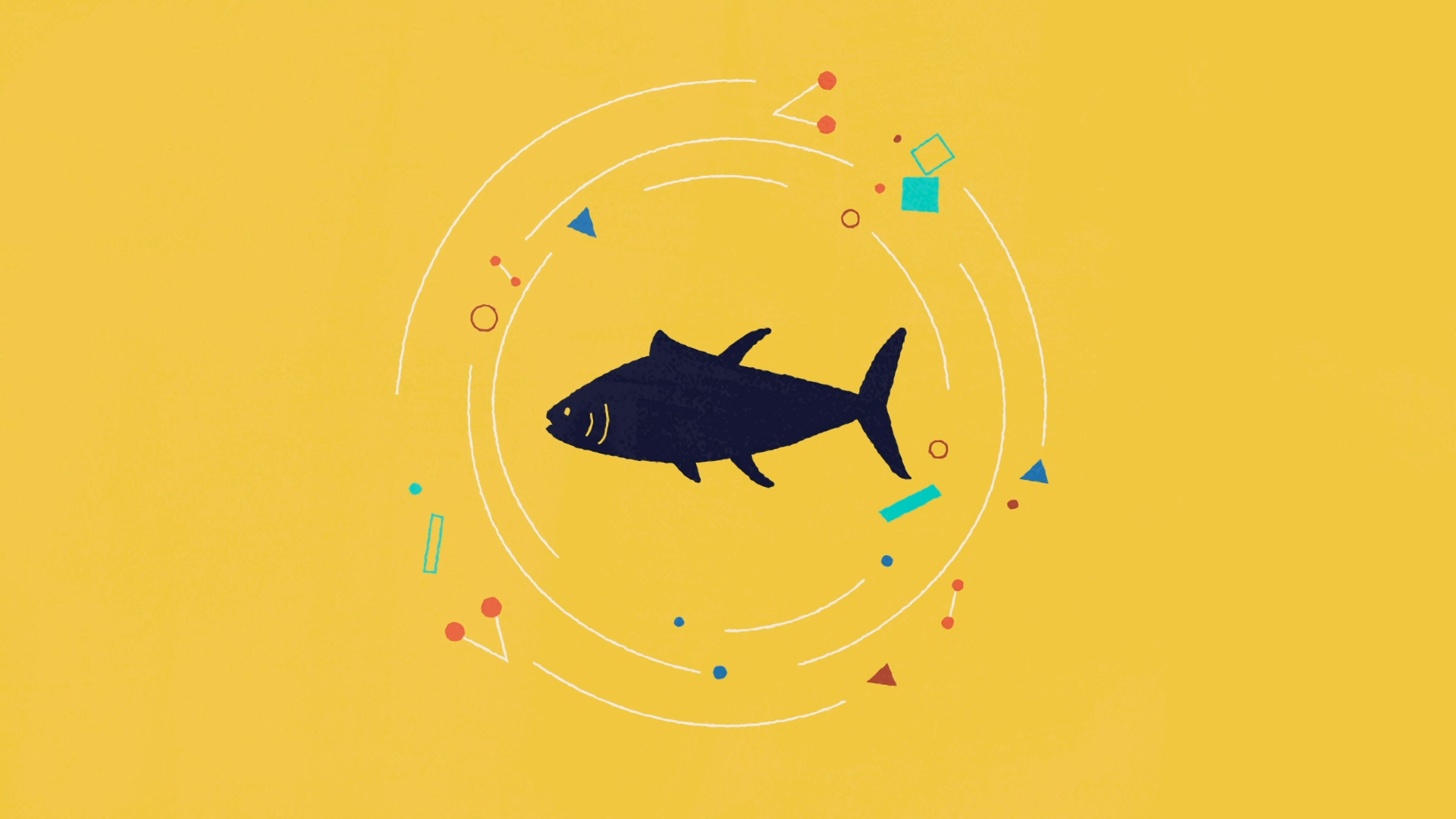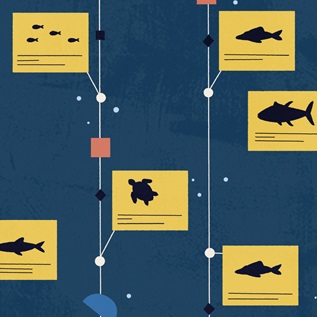Fisheries Managers Around the World Should Advance on Electronic Monitoring Programs in 2022
Technology can play important role in meeting global conservation goals

Fisheries managers around the world have the chance this year to make progress in applying new technologies to expand and improve oversight of fishing activity. Five regional fisheries management organizations (RFMOs) are collectively responsible for managing tuna fisheries in more than 90% of the world’s ocean. Worth $40 billion a year at the final point of sale, these fisheries are incredibly valuable and require strong management and oversight.
RFMOs therefore need reliable data on catch, bycatch, fishing effort and compliance with regulations in order to help ensure sustainability of global tuna populations. One technology that can help is electronic monitoring (EM), cameras and computer systems on vessels that can increase the transparency and traceability of fishing activities and complement existing RFMO requirements for human observers. Properly designed EM programs would help boost coverage and make sure that collected information is effectively transmitted, analyzed, stored and shared amongst fisheries stakeholders.
RFMOs continue to develop EM standards and programs
By 2020, the four largest tuna RFMOs had already begun designing EM programs and standards, which provide the guidelines for ensuring that accurate information is collected and shared by parties involved in a fishery. And the RFMOs continue to make progress despite the ongoing pandemic, which has forced them to hold more virtual meetings, often with limited time for discussion (see Table 1). Their work isn’t done, and RFMOs must move to finalize EM standards this year so that this technology can be implemented across their fisheries.
Table 1
Electronic Monitoring Program Progress at Four Tuna RFMOs
| RFMO | Progress to date | What should be done in 2022 |
|---|---|---|
| Inter-American Tropical Tuna Commission (IATTC) | In 2021, IATTC held two EM workshops to discuss a workplan for the development of an EM program for the eastern Pacific Ocean, which was endorsed at the annual Commission meeting in August, and recommendations for institutional structures, goals and scope for an RFMO-wide EM program. | The Commission will host workshops on management considerations for EM and technical standards and data collection priorities, with the results of those talks up for discussion at the 2022 annual Commission meeting. |
| International Commission for the Conservation of Atlantic Tunas (ICCAT) | In 2021, at the ICCAT annual meeting, members agreed to establish a Commission-wide EM working group. This new working group is in addition to a scientific EM working group and will develop an EM program that addresses scientific and compliance needs. | The two working groups will meet this year to develop draft standards that should be based on objectives set by ICCAT on enforcement and scientific data collection needs. |
| Indian Ocean Tuna Commission (IOTC) | In 2021, IOTC’s Working Group on EM Standards met for the first time and developed recommendations, including terms of reference for the group, which were endorsed by IOTC’s Scientific Committee and Working Party of Data Collection and Statistics. | The working group will develop minimum data standards and program standards in conjunction with scientists, managers, EM vendors and other stakeholders. This will include program objectives, roles and responsibilities, minimum technical specifications and provisions on how data is transferred and analyzed. |
| Western and Central Pacific Fisheries Commission (WCPFC) | In 2021, WCPFC members tasked its EM working group with finalizing standards for Commission review in 2022. | In 2022, the EM working group will review and finalize standards before presenting them to the WCPFC 2022 annual Commission meeting for discussion. |
How RFMOs can further develop and implement effective EM programs
To support the development of EM standards and broader EM programs, Pew developed a toolkit for RFMO members and interested stakeholders. These fact sheets highlight several key elements that RFMOs should consider, including:
- Program objectives: Setting clear goals for the program will guide overall design and help determine coverage levels.
- Stakeholder outreach and communication: Coordinated engagement is critical throughout EM program design, development and implementation to transfer lessons, develop solutions, improve transparency and garner buy-in.
- Program structure and review: Whether RFMOs decide on a centralized RFMO-wide EM program or a collection of subregional and domestic EM programs, a regular review process is key to any EM structure to continuously improve the program.
- Data collection, transmission and storage: Standards should detail how data is collected, reviewed, transmitted and stored.
- Data review and privacy: EM program standards must also protect crew privacy and data confidentiality.
Additionally, stakeholders should consider how to exchange and share information (i.e., interoperability), particularly since many vessels operate in multiple RFMO areas. Data sharing helps ensure that vessels can use the same EM systems while meeting the requirements of each RFMO and enables easier integration with other data streams.
Seafood companies and other market partners can also help drive EM implementation by committing to policies that promote better oversight and meet the growing consumer demand for sustainability. By advocating for the development, adoption and implementation of robust EM programs, fishers, processors and retailers can help guarantee a consistent supply of sustainable fish for the global market.
Managers and other fisheries stakeholders must continue to modernize and improve fisheries management by increasing transparency and accountability, which would benefit fishers and other members of the seafood supply chain as well as authorities. EM programs offer a way to complement human observer coverage and expand oversight to fleets that are not independently monitored. In 2021, RFMOs made progress towards developing EM programs. In 2022, these working groups must continue building strong EM requirements into the important work of effectively monitoring fisheries.
Raiana McKinney is a senior associate and Esther Wozniak is a principal associate with The Pew Charitable Trusts’ international fisheries project.









